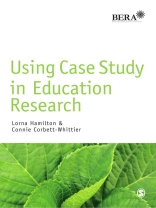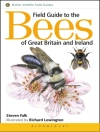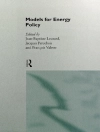This book provides an accessible introduction to using case studies. It makes sense of literature in this area, and shows how to generate collaborations and communicate findings.
The authors bring together the practical and the theoretical, enabling readers to build expertise on the principles and practice of case study research, as well as engaging with possible theoretical frameworks. They also highlight the place of case study as a key component of educational research.
With the help of this book, M-Level students, teacher educators and practitioner researchers will gain the confidence and skills needed to design and conduct a high quality case study.
Dr Lorna Hamilton is a Senior Lecturer in Education Research at the University of Edinburgh. Dr Connie Corbett-Whittier is an Associate Professor of English and Humanities at Friends University, Topeka, Kansas.
′Drawing on a wide range of their own and others′ experiences, the authors offer a comprehensive and convincing account of the value of case study in educational research. What comes across — quite passionately — is the way in which a case study approach can bring to life some of the complexities, challenges and contradictions inherent in educational settings. The book is written in a clear and lively manner and should be an invaluable resource for those teachers and students who are incorporating a case study dimension into their research work.′ -Ian Menter, Professor of Teacher Education, University of Oxford
′This book is comprehensive in its coverage, yet detailed in its exposition of case study research. It is a highly interactive text with a critical edge and is a useful tool for teaching. It is of particular relevance to practitioner researchers, providing accessible guidance for reflective practice. It covers key matters such as: purposes, ethics, data analysis, technology, dissemination and communities for research. And it is a good read!′ —
Professor Anne Campbell, formerly of Leeds Metropolitan University
′This excellent book is a principled and theoretically informed guide to case study research design and methods for the collection, analysis and presentatin of evidence′ — Professor Andrew Pollard, Institute of Education, University of London
Research Methods in Education series:
Each book in this series maps the territory of a key research approach or topic in order to help readers progress from beginner to advanced researcher.
Each book aims to provide a definitive, market-leading overview and to present a blend of theory and practice with a critical edge. All titles in the series are written for Master′s-level students anywhere and are intended to be useful to the many diverse constituencies interested in research on education and related areas.
Other books in the series:
— Qualitative Research in Education, Atkins and Wallace
— Action Research in Education, Mc Ateer
— Ethnography in Education, Mills and Morton
Содержание
PART ONE: THE CASE STUDY APPROACH IN EDUCATION RESEARCH
Defining Case Study in Education Research
Ideas as the Foundation for Case Study
PART TWO: CHOOSING THE CASE STUDY ROUTE
Key Purposes
Key Decisions
Ethics and Issues
PART THREE: DOING A CASE STUDY
Carrying out Your Study
A Practitioner Perspective
Approaches to Data Analysis
Using Technology to Manage and Analyze Your Data
PART FOUR: DISSEMINATING AND DEFENDING CASE STUDY APPROACH
Finding Your Voice
Sharing Case Study: Quality and Communication
PART FIVE: COMMUNITY AND NETWORKING
Virtual Environments and Collaborations
Community Building
Conclusion
References
Index












